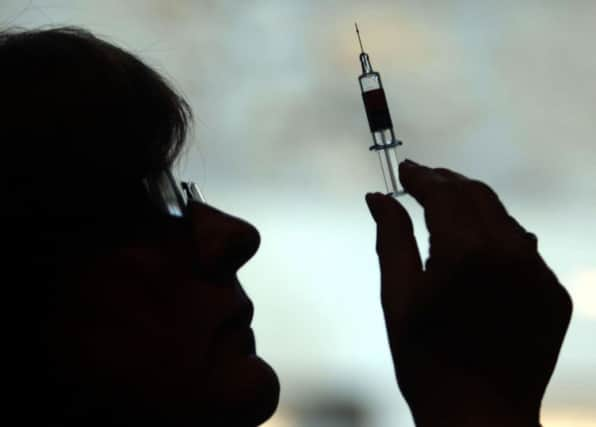Injection could reduce risk of heart attack by 90%


The jab, that has to be administered only once, has already been tested successfully on mice.
It uses cutting-edge DNA-editing technology to “knock out” a liver gene linked to raised levels of cholesterol in the bloodstream.
Advertisement
Hide AdAdvertisement
Hide AdIn the laboratory mice, the injection reduced blood concentrations of cholesterol by 35 to 40 per cent within days.
A similar impact on cholesterol in humans would lower the risk of heart attacks by as much as 90 per cent.
US lead scientist Dr Kiran Musunuru, from the Harvard Stem Cell Institute, said: “Heart attack is the leading natural killer worldwide, with one in two men and one in three women past the age of 40 having heart attacks in their lifetimes.
“If you had a therapy that targeted the liver, changed the genome – and if it were totally safe – then at least in theory you could think of this therapy as something like a vaccination.
“It could be a one-time treatment, a permanent alteration. If you used this in a population, you could reduce the occurrence of heart attack by 30, 50, 90 per cent.”
He said although the research was at a very early stage, the first trial patients could be offered the treatment within a decade.
The jab targets a liver gene called PCSK9 which is known to regulate levels of harmful cholesterol, or low-density lipoprotein (LDL).
In 2003, a team of French scientists found that people who inherited very high cholesterol levels and a vulnerability to early heart attacks carried a rare super-active variant of this gene.
Advertisement
Hide AdAdvertisement
Hide AdThen a Texan group discovered that about 3 per cent of the general population possess PCSK9 mutations that have the opposite effect.
“They have LDL levels some 15 to 28 per cent lower than average, and a 47 to 88 per cent reduced heart attack risk.
“Our reasoning was that nature has already done the experiment; you have people who have won the genetic lottery,” said Dr Musunuru.
“They are protected from heart attack, and there are no known adverse consequences. So that led us to reason that if we could find a way to replicate this, we could significantly protect people from heart attack.”
Advances in gene-editing technology provided the solution in the form of a tool called CRISPR/Cas9, discovered in 2007, which allows scientists to home in on and erase specific DNA sequences.
CRISPR/Cas9 makes it far easier to disrupt or “knock out” chosen genes in the course of scientific research.
Dr Musunuru’s team found they could prime the gene-editing tool to target PCSK9 in the liver and deliver it via a single injection.
The findings are reported today in the American Heart Association journal Circulation Research.